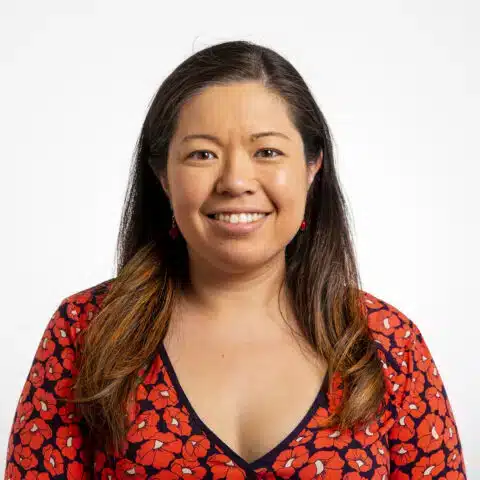For young women diagnosed with breast cancer, family planning might suddenly become a glaring priority as different treatment options can affect future fertility.
“I remember a patient once said to me that her fertility and having children was never important to her. She never really even thought she’d become a mother, but having the threat of that option taken away from her was actually quite distressing,” says A/Prof Michelle Peate, the Program Leader for the Psychosocial Health and Wellbeing Research (emPoWeR) Unit, University of Melbourne.

Around 4000 women in Australia and 440 women in New Zealand are diagnosed with breast cancer each year who are under the age of 45. Some treatments for breast cancer, such as chemotherapy and hormone therapy, may induce premature menopause and can reduce a woman’s chance of having children in the future.
While treatments can affect each person differently, it’s important to discuss fertility options with a breast cancer or fertility specialist as soon as possible.
Dr Peate says that once breast cancer treatment begins, there can be irreversible damage to fertility, so “it’s really important to have those discussions early and give people all the options so they can make an informed choice.”
“My perspective is a lot about giving everyone the information they need to make the right choice for themselves, which may be to preserve and freeze embryos or eggs, or it may be about making sure they all know that there’s a risk and know that there are options available to them,” she says.
Whether or not you’ve had children, are single or in a relationship or haven’t thought much about family planning, Dr Peate recommends talking to your doctors about your fertility options.
“And if the doctor is not able to provide that information, find another doctor who will,” she says. “Just make sure you have an informed decision.”
Values-driven options
One resource that might be useful for breast cancer patients is a ‘decision aid’, such as booklets or websites that contain information to help inform on fertility preservation options and the impact of cancer on fertility.
An advocate for value-driven decisions, Dr Peate was one of the first people in the world to incorporate this aspect into a fertility decision aid.
“What’s the right thing to do really comes down to what’s important to the individual’s values,” she says. “So our decision aid always has at the end this thing called a ‘values clarification exercise’.”
Some examples of values-driven options that a fertility decision aid might give include whether it’s important for the patient that their children are biologically related to them. If so, then Dr Peate says looking into fertility preservation options may be right for that patient, to preserve that genetic link. Whereas, if adoption appeals to the patient, then it might be less important to consider those fertility preservation options.
Through her research, Dr Peate says she and her team proved that decision aids with values-driven options “resulted in improved decision outcomes.”
“Women were more satisfied with their decision,” she says. “They did have less regret, as they were making choices consistent with their values.”
POEMS Trial
Research into fertility options for breast cancer patients has been quickly evolving. One innovative, new treatment option for young women with breast cancer has emerged from the POEMS clinical trial, to better preserve fertility during chemotherapy.
POEMS, which stands for Prevention of Early Menopause Study, was conducted in Australia and New Zealand by Breast Cancer Trials and globally by the SouthWest Oncology Group (USA).
One of Australia’s most prominent research-orientated cancer surgeons, Professor Christobel Saunders says she’s excited about the POEMS trials results as it showed “it was safe to interrupt hormone therapy after about 18 months to try to become pregnant.”

“This is very important for women with ER positive breast cancer who may be looking at 10 years of treatment and very diminished fertility at the end of this,” says Professor Saunders.
“This trial looked at how Zoladex may protect ovaries during chemo. Thanks to the trial and the women who participated, this is now standard of care and has allowed many women to maintain their ovarian function after chemo.”
Clinical trials such as POEMS can offer the best possible treatment and care to patients, says Professor Saunders, who encourages women with breast cancer to consider joining one to further their knowledge and help the next generation of patients.
“We know those in trials–and even those managed in centres that run trials– have better outcomes,” she says.
Join Breast Cancer Trials’ next free and online Q&A, happening Tuesday 20 February from 5-6:30pm (AEDT). The session will be moderated by author and journalist Annabel Crabb on the topic of breast cancer and fertility. To register click here.

